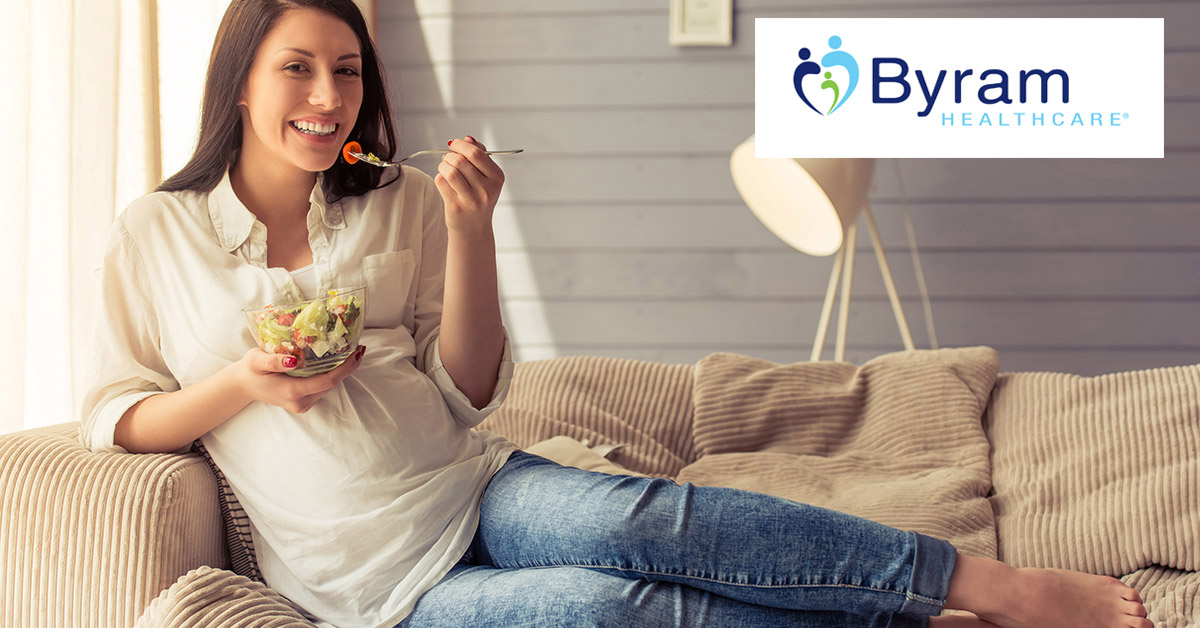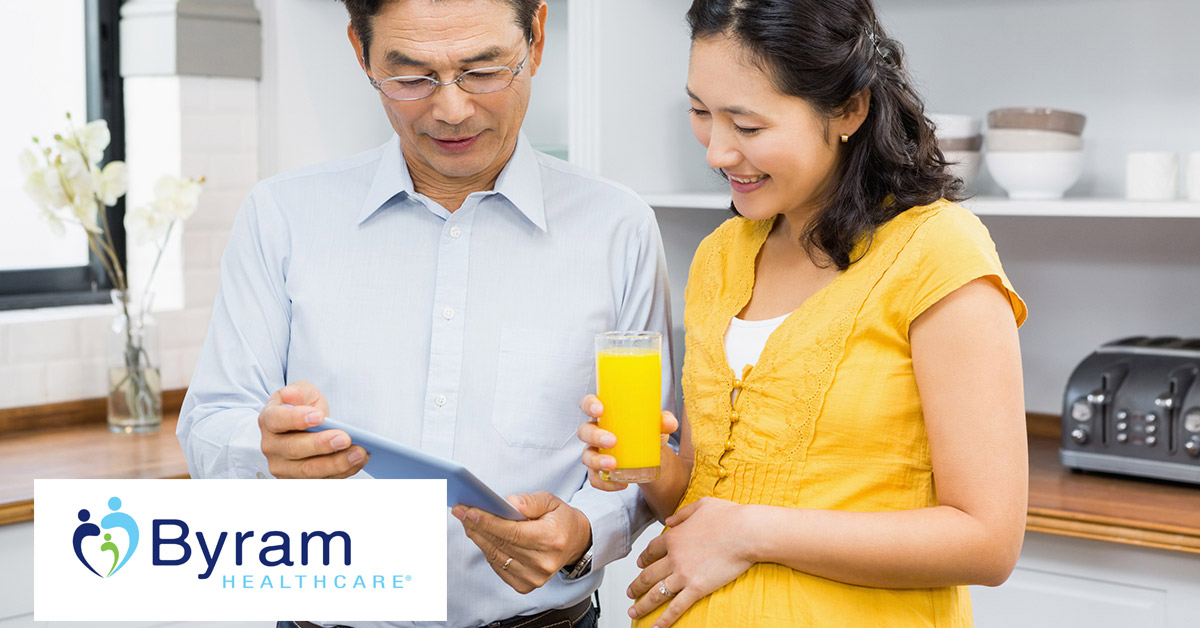Healthy Eating for Expecting Mothers
A healthy diet is a great way to make sure that you stay well nourished both physically and mentally. It keeps your body strong and your mind sharp. When you’re pregnant, it is even more important because you are responsible for the health of yourself as well as your growing baby.
Unfortunately, it is a little confusing as to what constitutes as “healthy” these days. With so many trends and fad diets, we end up getting confused rather than educated. That’s why we’ve put together a basic, but essential, list of healthy eating tips for expecting mothers. Enjoy!
The Importance of Liquids
Fluids are essential for anyone who wants to live a healthy lifestyle, but they are even more important for expecting mothers. While water is important, it doesn’t have to be the only liquid that you consume.
If you need a variety, or your taste buds are getting a little bored, try fruit juices, coconut water or even milk. All of which provide additional health benefits other than hydration. Opt for drinks that don’t have any added sugars or preservatives for the best benefits.
For instance, if you’re craving some juice, try making your own fresh squeezed juice using a juicer! These drinks contain tons of nutritional value and will help you supplement your diet with vitamins and minerals you may be missing. Check out some great recipes here.
While these are great alternatives, don’t forget that water is still crucial. One of the best reasons to continue consuming lots of water is that it helps you combat many of the health ailments that occur during pregnancy
Whichever way you decide to stay hydrated, aim for about 10 cups of fluid every day
It is also important to remember to limit your caffeine intake (less than 200mg per day) and to pass on alcoholic beverages throughout your entire pregnancy.
Focus on Vitamins and Nutrients
When you are growing a new life inside of you, it is important to pay attention to your vitamin and mineral intake. You want to make sure that what you’re eating (at least 98% of the time) offers your body nourishment rather than empty calories. Here are some important vitamins and minerals to focus on.
-
1. Calcium
-
Calcium is important for the overall development of your baby. It aids in bone growth and is essential for both of you. If you don’t consume enough calcium during your pregnancy, your baby will actually take it from your bones. This increases you and your baby’s risk of developing osteoporosis later in life. In addition, calcium helps nerves, blood vessels and muscles function better.
Aim for 1000-1300mg of calcium per day. Find great sources of calcium in the following foods:
- Yogurt
- Milk
- Spinach
- Broccoli
- Soybeans
- And more
-
2. Zinc
-
Zinc is another important vitamin to watch. Pregnant women who consume low levels of zinc tend to have a higher risk of preterm delivery or low birth weight babies. These foods are rich in zinc:
- Baked beans
- Spinach
- Mushrooms
- Cashews
- Chicken
- And more
-
3. Folic Acid
-
Folic acid, or folate, helps prevent neural tube defects (spina bifida) and aids in an overall healthy pregnancy. It is important to have in your diet every day and you should aim for about 0.64 mg (600mcg) a day. Add these foods to your diet to get naturally occurring folate, or take a supplement:
- Dark leafy greens
- Asparagus
- Legumes
- Oranges
- Whole grain cereals
- And more
-
4. Iron
-
A lot of people know how important iron is for your diet. It is crucial for the formation of hemoglobin, which is what supplies oxygen to your red blood cells. It is even more important for pregnant women, who actually need 50% more iron in their daily diet. This is because the growing placenta needs a lot of iron for a healthy development and anemia is a dangerous condition during pregnancy. Try adding these iron rich foods to your diet:
- Leafy greens
- Lean meats
- Beans
- Chicken
- Lentils
- Quinoa
- And more
-
5. Vitamin A and C
-
Vitamins are important, but pay special attention to Vitamins A and C during your pregnancy. This is especially true if you are a younger mom because you and your growing fetus may be competing for nutrients that your body needs. Check out these vitamin rich foods:

-
6. Protein
-
Although it’s not a vitamin or mineral, it is an important building block in your body. Protein is the structural material of each and every cell in your baby’s growing body. When you don’t get enough protein in your diet during pregnancy, you are essentially restricting your baby’s growth and development. Aim for about 70g of protein a day for a healthy pregnancy. Take a look at these protein rich foods to add to your next meal:
- Milk
- Lean chicken breast
- Tofu
- Lentils
- Cheese
- Seafood
- And more
-
7. Docosahexaenoic Acid (DHA)
-
DHA is an essential omega-3 fatty acid that supports healthy brain and eye development2. Eat these foods to nourish your body with this essential nutrient:
- Chia seeds
- Walnuts
- Salmon
- Egg yolks
- And more
- As a side note: make sure to steer clear of any foods that are high in mercury. Even if they have a high level of DHA, the mercury is dangerous to your baby’s developing neurological system.
General Tips
In addition to making sure that your body has the right vitamins and minerals to support a healthy pregnancy, there are a few other things to keep in mind.
-
Get enough fiber
-
Constipation is one of the more irritating problems that pregnant women experience, which is why fiber is so important. Fiber helps ease constipation, as long as you simultaneously stay hydrated. When you have a healthy amount of fiber, you also allow your body to absorb more nutrients from the food that you are eating.
-
Make calories count
-
It’s easy to give into pregnancy cravings and consume empty calories all day, but that’s not the best way to nourish your baby. While weight gain is inevitable, there is a line between healthy and unhealthy.
In reality, the phrase “eating for two” is a huge misconception. You only need about 200-300 extra calories a day. With all of the nutrients your baby needs, you should make every one of those calories count. As the day goes on, try and “eat the rainbow.” What this means is that you should attempt to eat foods that are different in color and sources.
However, don’t be afraid to splurge every now and then. Pregnancy cravings are real and as long as it isn’t a daily junk food festival, the occasional brownie won’t do you any harm.
Foods to Avoid
It is true that not all foods are created equally. Some food is fine to eat; just lacking nutrients while other food are detrimental to the development of your baby. Check out some of the most important foods to keep out of your diet:
- Raw, uncooked fish (sushi)
- Shark
- Swordfish
- Oysters
- Soft cheese (they are usually unpasteurized and not safe for pregnant women)
- Raw, rare or undercooked meat
- Lunch meats
- Hot dogs
- Limit caffeine (less than 300mg/day)
- Alcohol
For a more comprehensive list on what foods are unsafe to eat during pregnancy, check out this site.
Conclusion
In order for a healthy pregnancy, you will want to maintain a healthy diet. Healthy eating is one of the best ways to ensure that your baby develops properly! If you have any serious questions, or would like to discuss personal diet plans in more detail, talk to your primary care doctor or a nutritionist that specializes in pregnancy. You can also find more great pregnancy tips, info, and product reviews on our website. Don’t forget to order your insurance covered breast pump through Byram Healthcare!
If you have any other healthy eating tips for expecting mothers, comment on our Facebook page! We always love hearing what other moms have to say!






